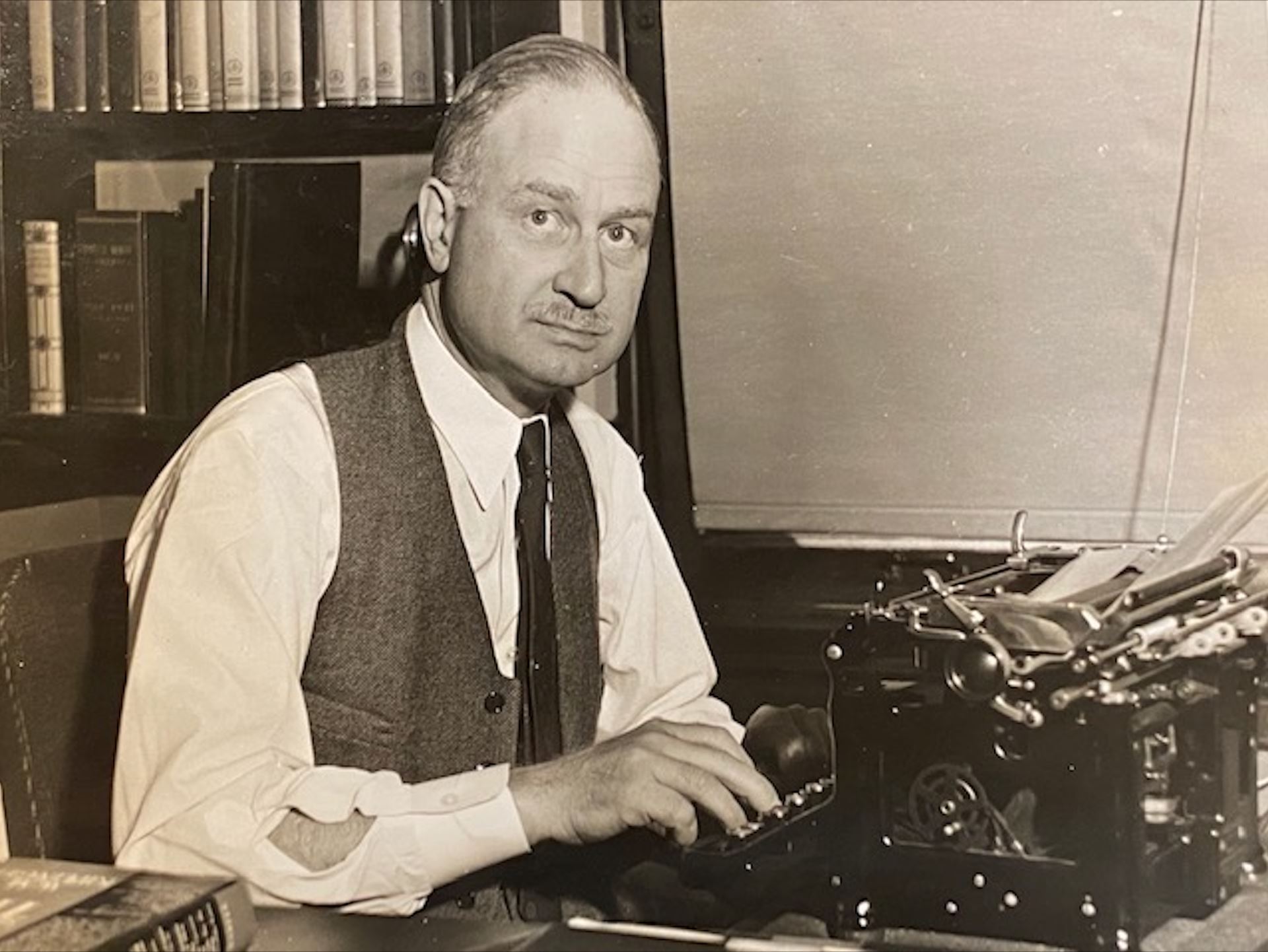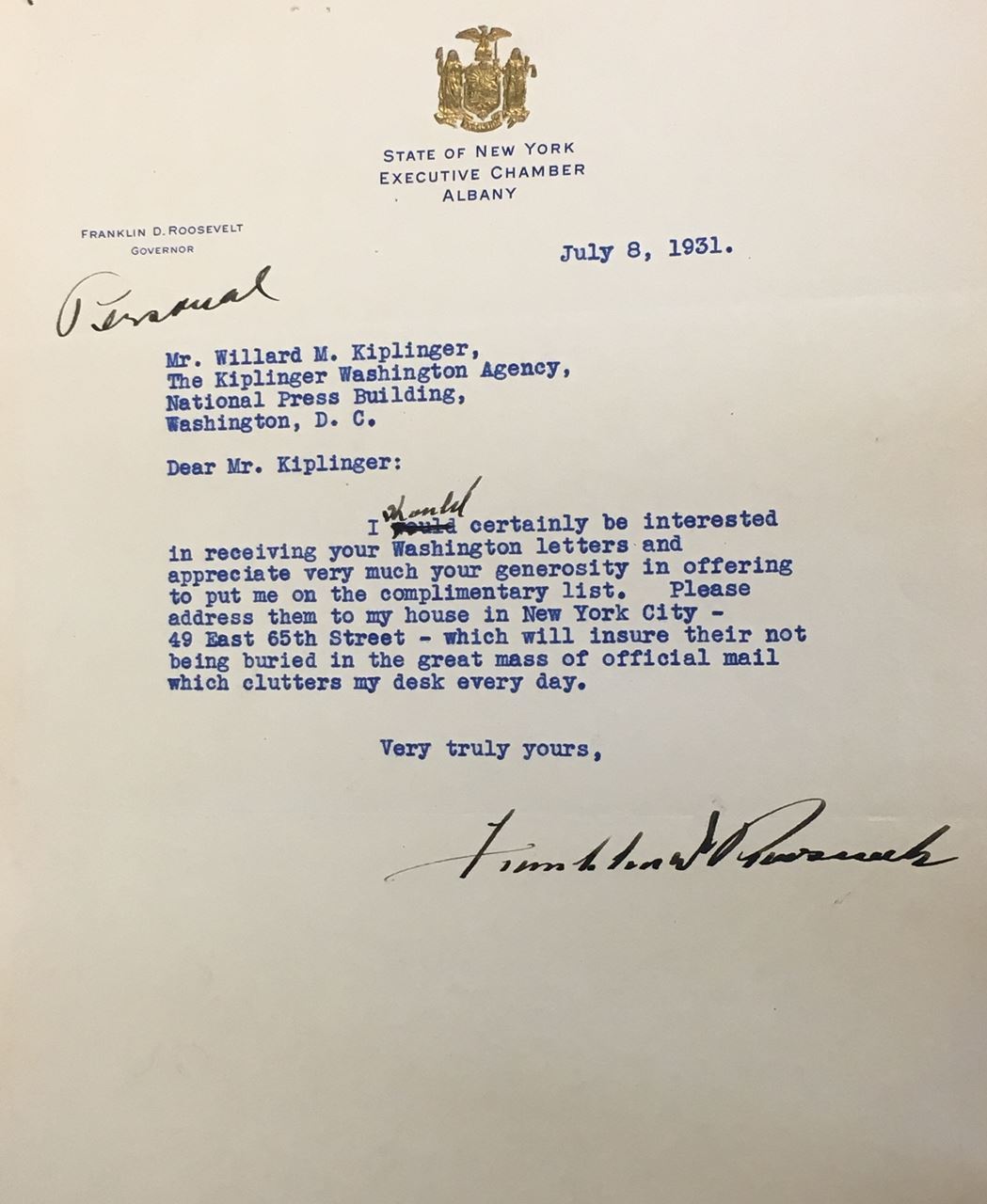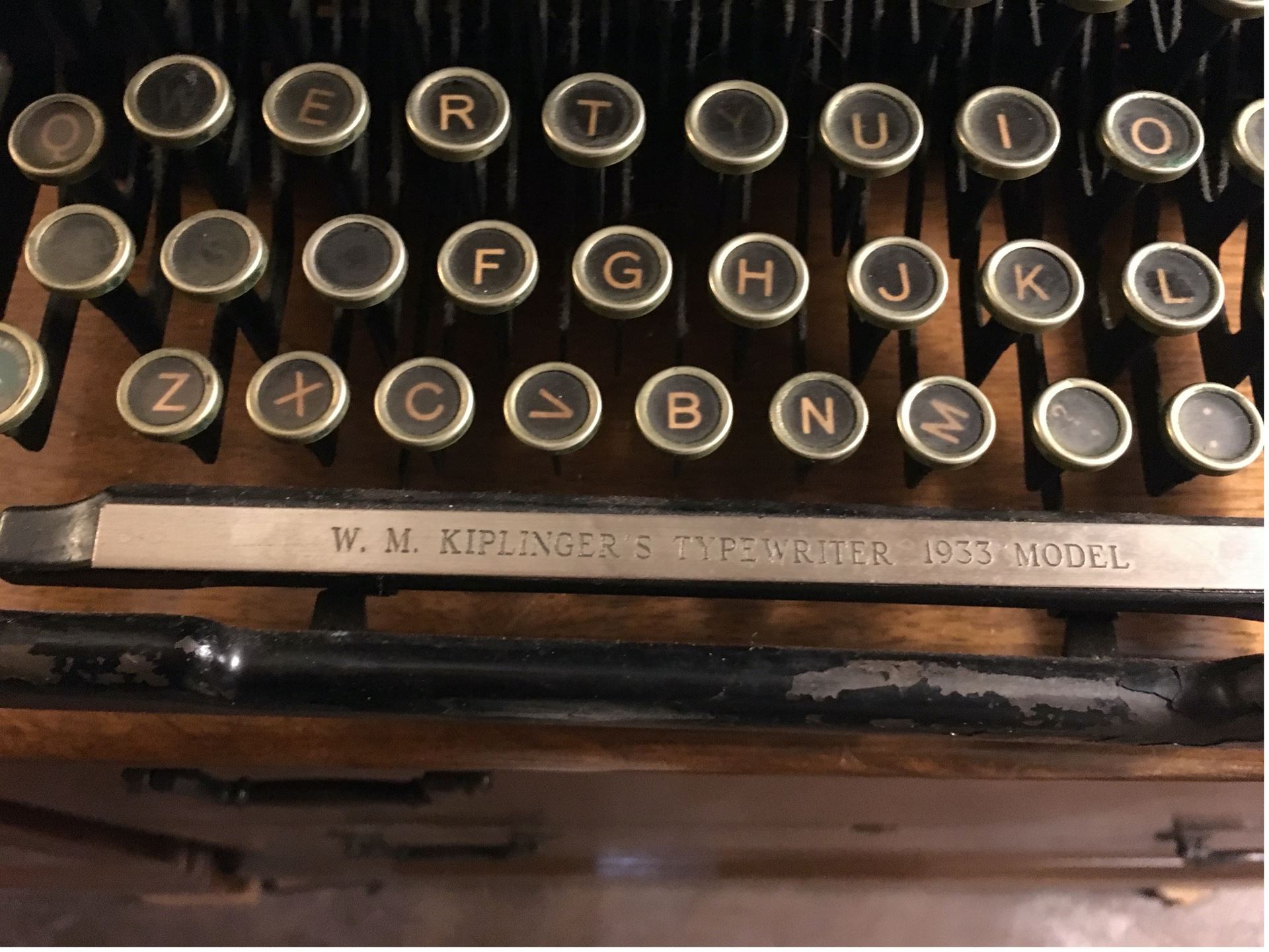
by Rob Wells, University of Maryland

There are times when a research project finds you.
That sense of inevitability has been ever present in my work on journalist Willard Kiplinger, creator of the iconic personal finance magazine and political newsletter. It began as a request to write a short entry in American National Biography. I thought a Kiplinger article would complement my existing research on the trade press, and so I contacted the journalist’s grandson and an heir to the publishing enterprise, Knight Kiplinger, to verify a few basic details. That call lasted one and one-half hours.
Had anyone written a book about Willard Kiplinger’s career, I asked? Except for some internal histories, not really, Knight Kiplinger said.
“I have a copy of my grandfather’s unpublished memoirs and an unpublished company history,” Knight Kiplinger told me. “Would you like to see them?”
This story was ready to be told, and I was now in position to do it. Over the next few years, I obtained thousands of documents from the Kiplinger family files and supplemented that with research from the Hoover Institution at Stanford, the Herbert Hoover Presidential Library and other assorted university archives.
 I was the first outside historian to examine the inner workings of a publishing enterprise that set a standard for quality personal finance journalism and political reporting for business leaders. The Kiplinger business and personal archives, located in a 19th century farmhouse outside of Washington, D.C., is a treasure trove of primary source material. I viewed and copied original correspondence between Kiplinger and Franklin Delano Roosevelt, Herbert Hoover, Joseph Kennedy, Henry Morgenthau and many others.
I was the first outside historian to examine the inner workings of a publishing enterprise that set a standard for quality personal finance journalism and political reporting for business leaders. The Kiplinger business and personal archives, located in a 19th century farmhouse outside of Washington, D.C., is a treasure trove of primary source material. I viewed and copied original correspondence between Kiplinger and Franklin Delano Roosevelt, Herbert Hoover, Joseph Kennedy, Henry Morgenthau and many others.
The results of this project, The Insider: How the Kiplinger Newsletter Bridged Washington and Wall Street, will be published this fall by the University of Massachusetts Press. The book argues that Kiplinger was an influential player in journalism and politics during the New Deal, a link between the worlds of Presidents Hoover and Roosevelt. The McKerns Research Grant gave me the resources to help pull this project together, especially during the pandemic.
Initially, I had planned to use the funds for research travel, but the Covid-19 pandemic made that difficult. The funds, however, provided me with the means to acquire documents from archives in other states. I soon realized my research problem was not one of document acquisition but instead one of document synthesis.
I used the funds to hire a talented graduate assistant, Matthew Moore at the University of Arkansas, who helped organize and categorize a significant corpus of material from competing publications, such as Business Week, Fortune, and the business section of The New York Times. Moore helped categorize a fat scrapbook of Kiplinger’s public appearances in the 1920s and 1930s so I could create a data visualization demonstrating the journalist’s influence in the public sphere. The funds allowed me to hire researcher Julie Schapiro, who manages the Kiplinger archives, to conduct a series of highly specialized document searches for business leader correspondence.

This process of synthesis, and discussions with my editor Kathy Roberts Forde, led to some important insights about the role business journalism can play in democracy. I found how Kiplinger helped advance democracy and the rise of modern capitalism by arguing that corporations needed new regulatory structures to curtail their power. Kiplinger’s influential commentary came during the depths of the Great Depression, when the very notion of free markets and the future of capitalism were being questioned. Rather than pander to his business audience, Kiplinger repeatedly told these senior corporate leaders that a new order was in place. Laissez-faire economics was dead, and regulation was necessary, he argued.
I believe this book makes an important contribution to the field of journalism history, and I am very grateful to the American Journalism Historians Association for supporting this work.
Images
- Willard Kiplinger at typewriter, circa 1930. Photo courtesy Knight Kiplinger.
- A 1931 letter from then-New York Gov. Franklin Roosevelt to Willard Kiplinger. The Kiplinger archives holds original correspondence with political and business leaders. Photo by Rob Wells.
- Willard Kiplinger’s well-used Underwood typewriter. This is one of the many artifacts in the Kiplinger family archives. Photo by Rob Wells.
Rob Wells is a Visiting Associate Professor at the University of Maryland. He received a Joseph McKerns Research Grant in 2020. Applications for 2022 McKerns Grants are due June 15; see the McKerns page for details.

